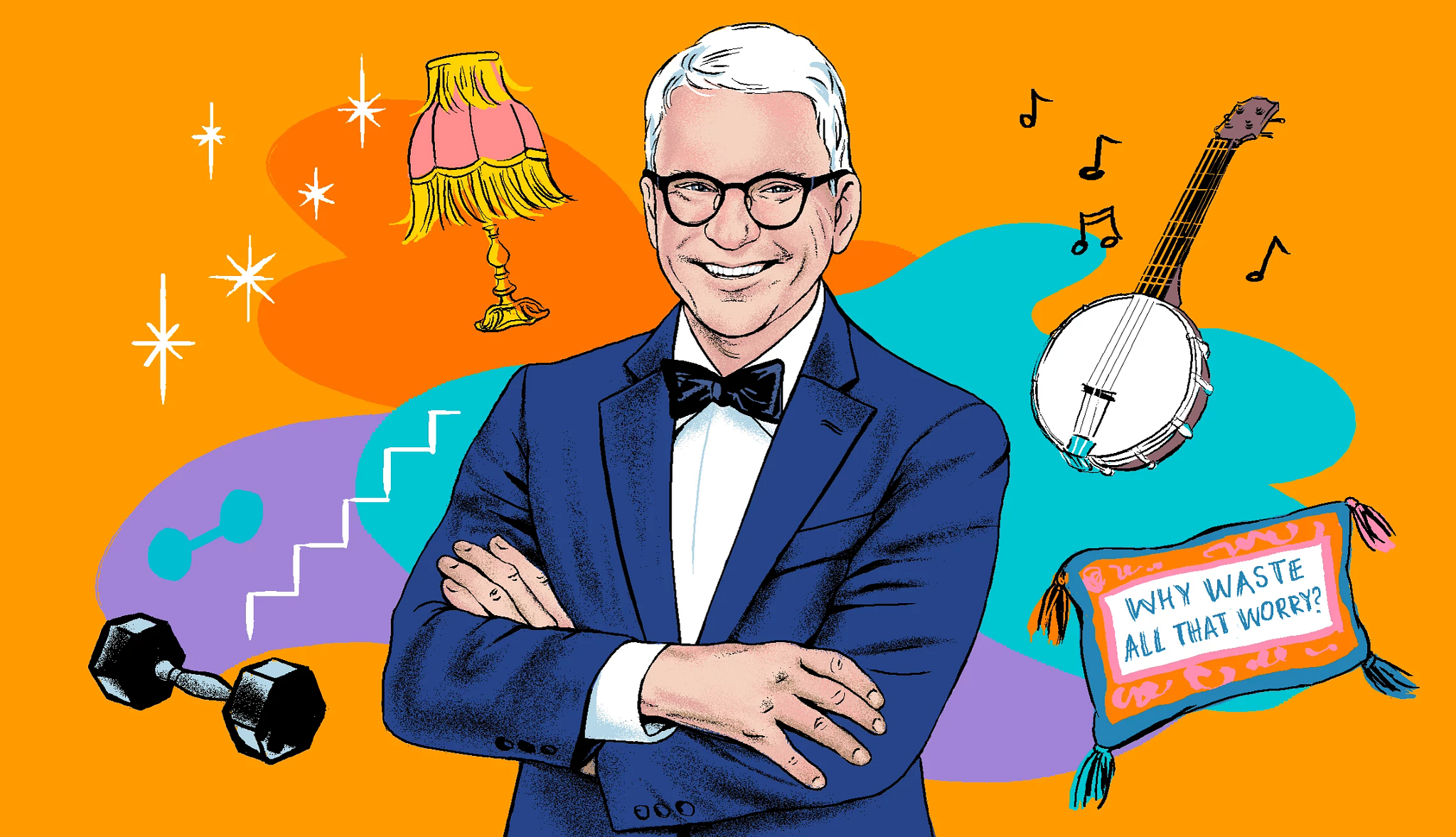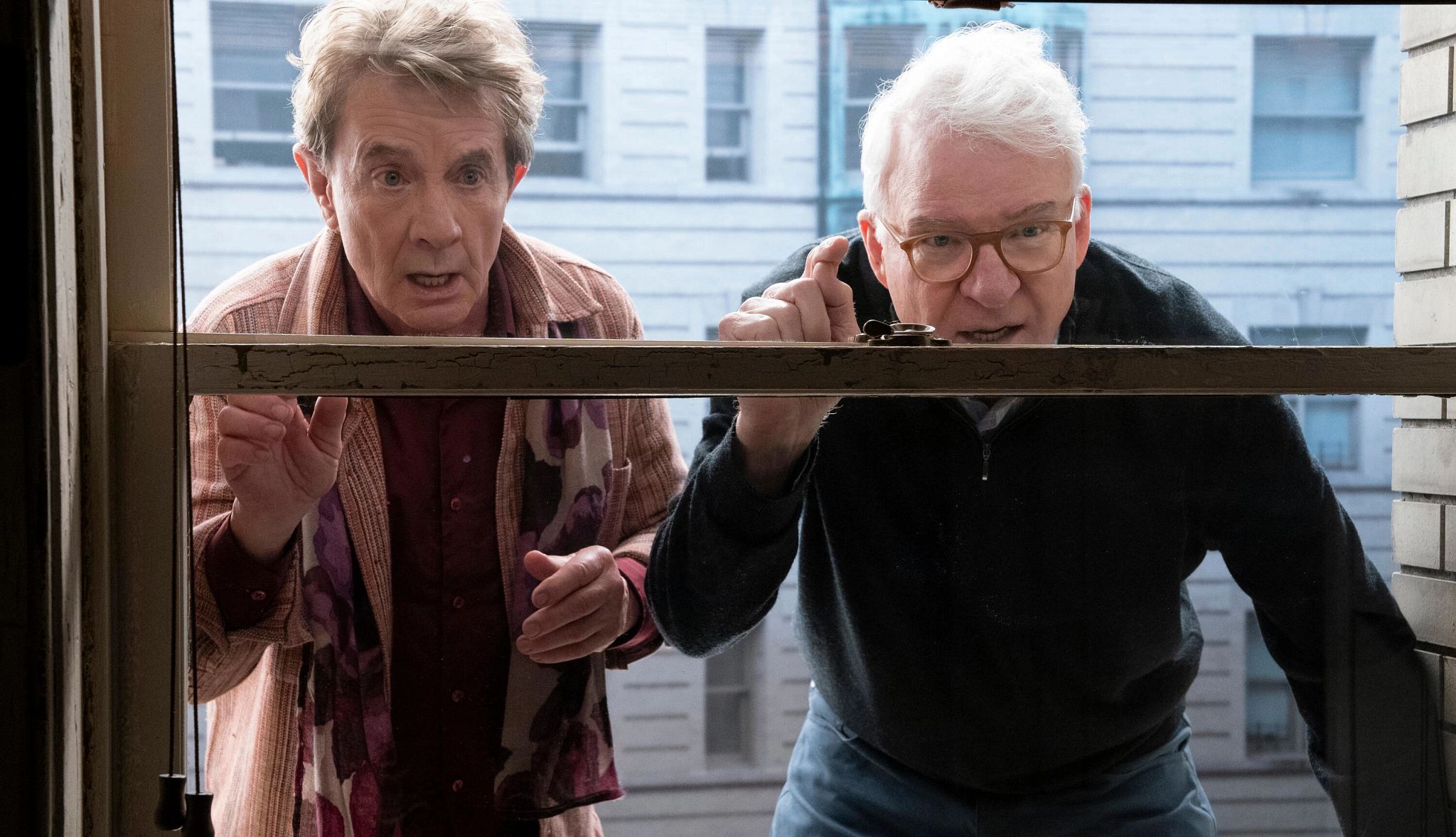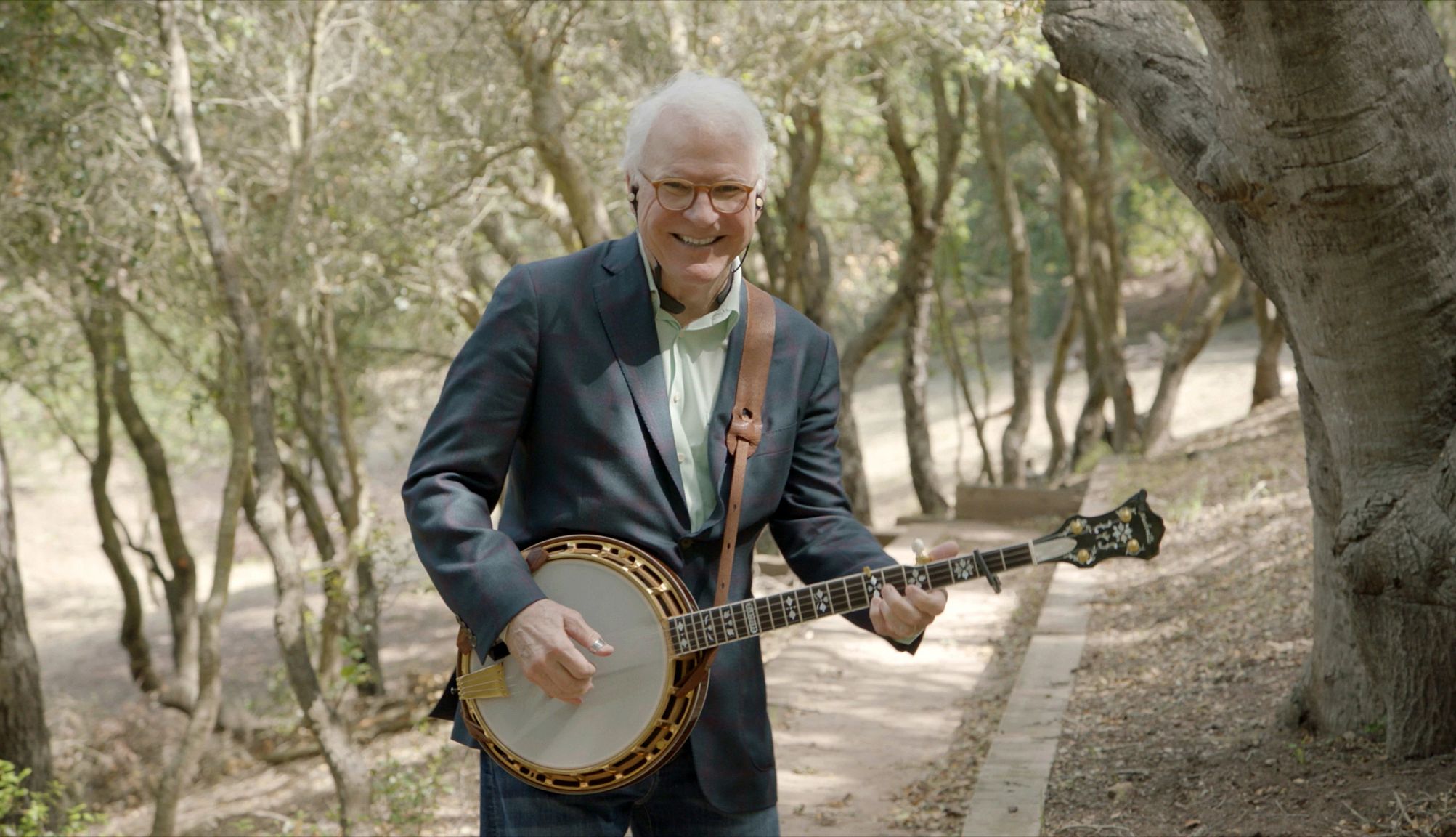AARP Hearing Center


The fifth season of Only Murders in the Building drops Sept. 9 on Hulu, with three fresh episodes followed by new installments every Tuesday. It’s big news for anyone who loves cozy mysteries, clever comedies or just watching Steve Martin banter his way through Manhattan with Martin Short, 75, and Selena Gomez.
But for those of us who grew up watching Martin, it’s something even sweeter: a reminder that the man who turned 80 this August has no plans of slowing down. For decades, Martin has been our cultural North Star. In the 1970s, he gave us permission to be silly and laugh at jokes our parents didn’t quite get. In the ’80s and ’90s, he showed us how to navigate adulthood, whether fumbling through romance in L.A. Story, learning the true value of friendship in Planes, Trains and Automobiles, or juggling the chaos of family life in Parenthood.
And now, in the 21st century, he’s modeling something rarer: how to grow older with style, grace and a sharp punchline. Consider this his wild and crazy syllabus for aging well.


You can peak in any — and every — decade
Every decade comes with its own surprises and new chances to reinvent yourself. Martin’s career proves the fun doesn’t expire after your 20s or 30s; it just changes flavor.
Back in the late ’60s, while writing for The Smothers Brothers Comedy Hour, his writing partner Bob Einstein told him, “You know what’s going to help you? Age.” And he was right. Martin didn’t burn out with age — he leveled up. His comedy got sharper, sillier and more original. He wasn’t chasing trends or politics like other comics in bell-bottoms; he was building an act with the confidence of someone who had lived a little and wasn’t afraid to look ridiculous.
“I’ve always observed that as we all get older, we either turn into our best selves or our worst selves,” Martin told PBS in 2009. He kept leaning into his best self: funnier, wiser and always ready to turn the next decade into a brand-new bit.
Rock that white hair
Martin found his first gray hair at 15, and by his early 30s he was completely silver. For some, this could have led to panic-buying hair dye. For Martin, it became his secret weapon — the shock of white hair made him instantly distinctive. It gave his absurd comedy a strange authority, as if the elder statesman of show business had shown up in bunny ears. The look became inseparable from the act.
As Martin Short once joked with his old pal on Jimmy Kimmel Live!, “You don’t age, and that’s the benefit of looking 70 since you’ve been 30.” So don’t fight the gray. As Martin proves, sometimes the thing you’re most insecure about can turn out to be the very thing that makes you unforgettable.


Stay curious (even about banjos)
Most comedians would’ve been content to let the banjo be a stage prop. Martin turned it into a second career. He has five Grammy Awards, and three of them are for banjo music. Yes, three. For the banjo, not his jokes.
What began as a quirky bit in his stand-up routine grew into decades of serious practice, albums and collaborations with the best bluegrass musicians in the world. The lesson? Curiosity doesn’t come with an expiration date. And it may do more than keep you entertained: A 2024 Georgia Institute of Technology study found that familiar music can actually enhance concentration and learning, while music with a strong emotional tone can reshape the quality of existing memories. In other words, Martin’s banjo obsession hasn’t just kept him sharp and creative, it’s also a reminder that following your curiosity might literally help tune your brain.








































































You Might Also Like
Jimmy Fallon's Family Inspired His Journey
The ‘Tonight Show’ host has a new children’s book all about granddads
Ozzy Taught Me Everything I Know About Aging
15 lessons from the late metal god that prove getting old doesn’t mean getting boring
25 Great Movies Starring Actors Over 60
These grownup stars shine with unforgettable performances